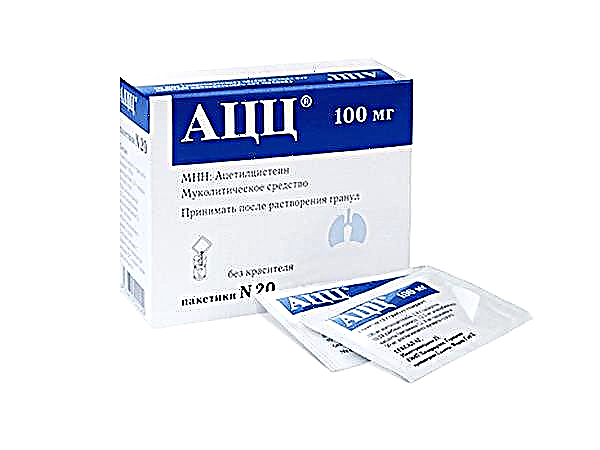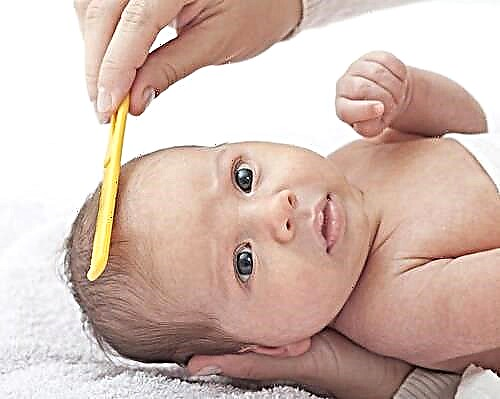
Younger school age is a time of amazing discoveries. And parents really want no illnesses to overshadow the everyday life of young researchers aged 8 and older.

In fact, the immunity of children at this age is already quite strong in comparison with toddlers - preschoolers, however, It is in this age group that the risks of contracting viral infections are as high as no one else. The fact is that junior schoolchildren go through a difficult period of adaptation to new conditions for themselves. They get used to school everyday life, responsible assignments, independence, a new team. This requires a lot of effort from a small organism. Therefore, sometimes it weakens, and viruses do not sleep, and confidently attack the weakest point.

Many parents, especially children with frequent illnesses, seriously think about the prevention of influenza and ARVI. Especially during the cold season, when the incidence of viral infections is high. And if the child is already sick, then mothers and fathers do their best to help him recover as soon as possible. To do this, they have to turn to the development of pharmacists and buy children's antiviral drugs.


Operating principle
Let's try to understand how antiviral drugs work. When a virus enters a child's body, and more often it happens by airborne droplets, it begins to integrate into healthy cells, changing their genome in such a way that the cell ceases to perform its immediate duties and is engaged in ensuring the life of an uninvited “guest”. Gradually, new particles are produced, which penetrate into healthy cells, and the affected cells die. This is how a viral infection spreads.

Antiviral drugs can work in different ways. Some directly target the virus, preventing replication and the release of new particles from their affected cells. Others - stimulate the immune system to give a decent "response" to the invaders. Still others contain interferons, proteins that are actively involved in the destruction of viruses during the immune response. There are also homeopathic antivirals.


Each type of virus medicine has its own pros and cons. Homeopathic pills (Oscillococinum, Anaferon for children, etc.), for example, have almost no side effects, however, their effectiveness has not been clinically proven.

Direct-acting drugs ("Rimantadin" and the like) are quite aggressive not only in relation to the virus, but also to the entire body of the child as a whole. Immunostimulants and immunomodulators (Genferon, Tsitovir, etc.) quickly "pump" natural defense, activate it, but have one unpleasant effect - the child's immunity can get used to them, and then refuse to work independently. Doctors call this condition immunodeficiency.
Preparations that contain interferon (Interferon, Viferon, etc.) deliver a ready-made protein to the sick child's body, obtained from donated blood cells or in the laboratory using the achievements of genetic engineering, but they have a large list of contraindications and side effects.
Efficiency
Advertising on television, radio and on the Internet claims that "wonderful" powders and tablets "will quickly and gently relieve children and adults from the symptoms of influenza and SARS, but experts question the effectiveness of antiviral agents. So far, it has not been convincingly proven. Many doctors are sure that drugs in this group have no effect at all, and the cure from a viral infection is completely "assigned" to the child's own immunity.

Doctors are even more categorical about homeopathic medicines with antiviral effect. Not only were they not properly researched, following all the rules of a clinical trial, they were not investigated at all. The doses of active substances in them are so small that it is not possible to prove or disprove their effect on the human body.

Parents may argue that pediatricians so often prescribe antiviral drugs to children! Indeed, these drugs, with unproven efficacy, have long been firmly established in standard therapy. The doctor, as a responsible person, is obliged to appoint at least something, because moms and dads expect this from him. And in case of viral infections, for reasons of common sense, it is not necessary to prescribe anything special, since the immune system works and does everything by itself.
So doctors prescribe homeopathic "Anaferon" or preparations of immunostimulating action, because there will not be much harm, and parents usually do not ask about the benefits.

When to give?
You might get the impression that taking anti-virus tools is unnecessary and futile. In most cases, this is true. But there are situations when it is better to give these drugs to the child. Let's take a look at them:
- If the child has flu and ARVI are very difficult, with high fever (above 39.0-39.5).
- If the child has a high risk of complicating a viral infection with a bacterial secondary infection.
- If a child has weak immunity, for treatment and during a period of mass morbidity - for prevention.
- If the child has a difficult time with signs of intoxication, other viral infections occur - chickenpox, measles, rubella, scarlet fever, herpes infection, etc.

Don't give your child antiviral drugs more than twice a year.to avoid the occurrence of immunodeficiency and autoimmune diseases. Prophylactic doses should always be half the therapeutic dose.
You should not choose the drug yourself, it is better to entrust this to a doctor who will take into account both the child's age and the state of his health, as well as weigh all the possible risks from taking the medicine.

Choice
When choosing a drug for a child aged 8-9 years, it should be borne in mind that for children of this age group, bans on solid forms - tablets are lifted. Therefore, parents and doctors have a fairly large choice: you can safely use rectal suppositories, syrups and suspensions, oral solutions, eye and nasal drops, sprays, tablets. It is better to refuse aerosols until the child reaches the age of 10 years. Sustained-release capsules are recommended for children aged 11-12 years.


When choosing an antivirus product, the price says little. Expensive foreign drugs may have "generics", that is, similar drugs of domestic production. In terms of composition, they will be absolutely identical, but the difference in cost can be 200-300%.
When choosing, you should not rely on reviews from other parents and pharmacists in the pharmacy. All children are different, they have different immunity, each has its own drug.

Popular drugs 8+
Homeopathic
- "Anaferon for children" - sublingual tablets.
- "Aflubin" - drops, tablets for sucking.
- Oscillococinum - granules for resorption.
- Ergoferon - tablets for resorption.
- Influcid - solution and tablets.
- "Engystol" - lozenges.
- Ingavirin 60 - tablets.

Immunostimulants and immunomodulators, interferon inducers
- "Immunal" - tablets and solution.
- "Imupret" - dragee and solution.
- "Citovir 3" - powder, syrup, capsules.
- "Kagocel" - tablets.
Interferons
- "Viferon" - rectal suppositories.
- "Kipferon" - rectal suppositories.
- "Interferon" - dry powder for solution, eye drops, ready-made drops in the nose, in the eyes, ointment, gel, spray, suppositories, tablets.
Direct antiviral drugs
- Orvirem is a sweet syrup.
- Tamiflu capsules and dry powder.
- "Alpizarin" - ointment and tablets.
- "Amiksin" - tablets.
- "Relenza" is a powder for inhalation.
- "Remantadin" - tablets, syrup and pills.
General recommendations
- Do not combine antiviral and antipyretic drugs. High temperature is a sure sign that a protective reaction is taking place in the body, its own interferon is being produced. By knocking it down, we kind of "forbid" the body to fight, and while giving drugs that stimulate the immune system, we put the child's defense system at a standstill.
- Antibiotics with antiviral drugs can be combined if, against the background of a viral illness, the development of a bacterial complication has begun. Both drugs should be prescribed exclusively by a doctor in order to avoid the negative consequences of self-medication.
- Do not exceed the dosage prescribed by a specialist and the duration of the course of treatment against viruses. This may be the reason that antibodies to the pathogen begin to destroy completely healthy healthy cells of their own body.
- Before asking your pediatrician to prescribe antiviral pills, ask if you can do with folk remedies for treating viral infections. An excellent natural "destroyer" of viruses is viburnum, any sour berries (cranberries, red and black currants, cherries). Age 8+ allows you to give your child honey, which strengthens the immune system no worse than an expensive pharmaceutical drug-immunostimulant. Onion juice and garlic will come to the rescue in the fight against influenza and SARS.
- On average, the course of treatment for the acute stage of a viral infection lasts 3-7 days. Taking antiviral drugs is calculated, according to the recommendations of the manufacturers, for about the same period. For the purpose of prevention, such medicines are prescribed in small doses according to a specific scheme 2-5. For two days the child takes a pill of "Arbidol" or "Kagocel", then a break is made for five days. The prophylactic regimen may be different, at the discretion of the doctor.
- You should not try to treat the flu or SARS in a child with antibiotics. Antibacterial agents in this situation are completely powerless.

And now Dr. Komarovsky will tell us his opinion about antiviral drugs.



